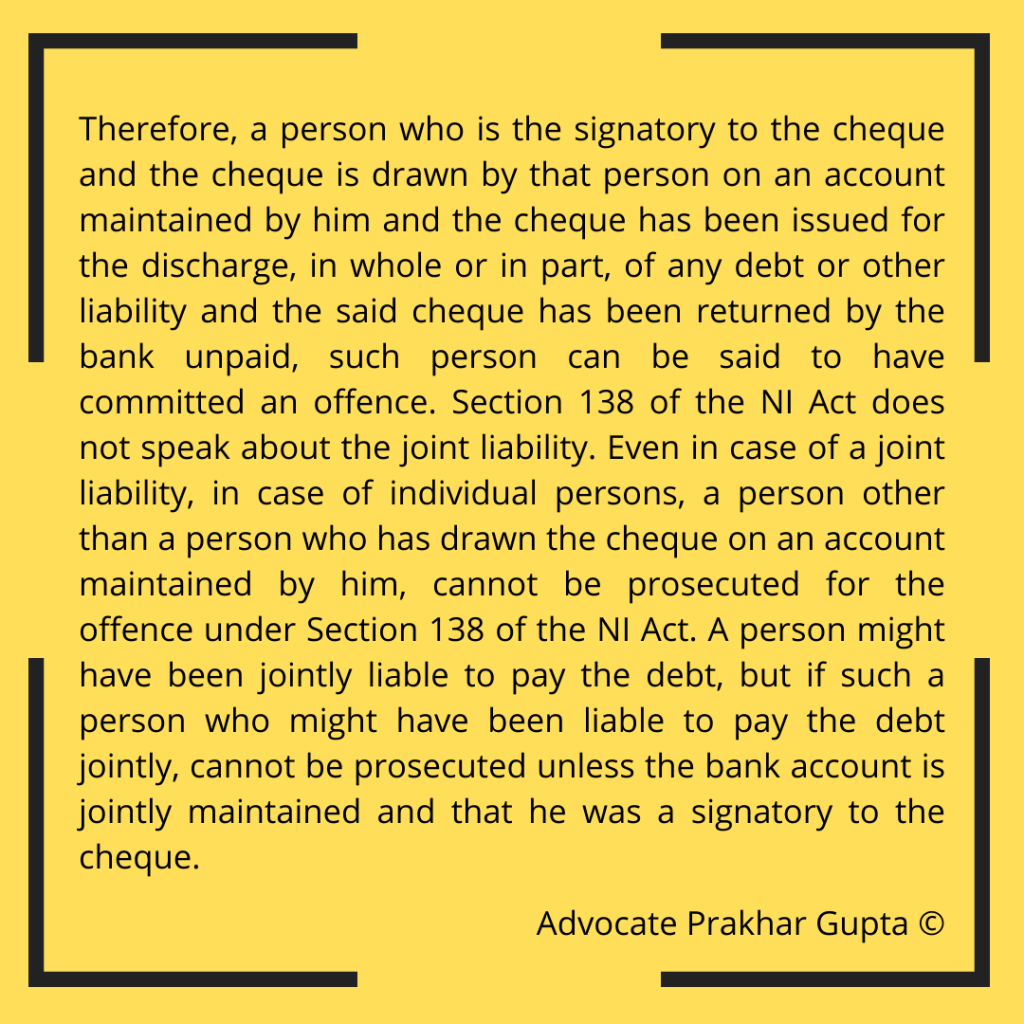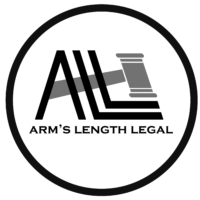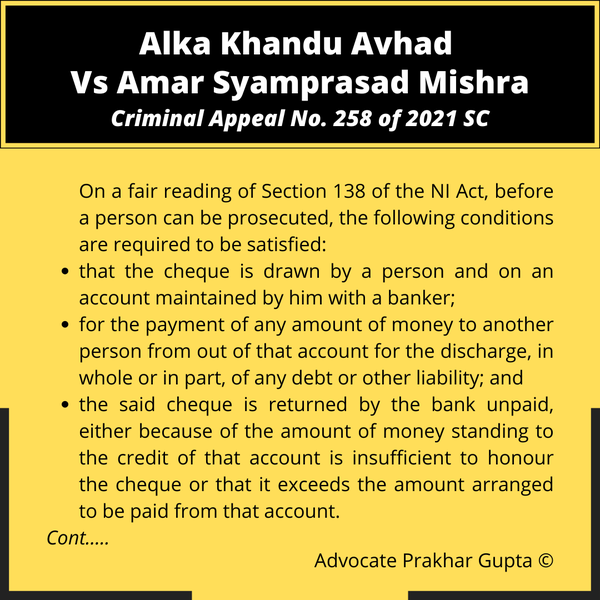On a fair reading of Section 138 of the NI Act, before a person can be prosecuted, the following conditions are required to be satisfied:
- that the cheque is drawn by a person and on an account maintained by him with a banker;
- for the payment of any amount of money to another person from out of that account for the discharge, in whole or in part, of any debt or other liability; and
- the said cheque is returned by the bank unpaid, either because of the amount of money standing to the credit of that account is insufficient to honour the cheque or that it exceeds the amount arranged to be paid from that account.Therefore, a person who is the signatory to the cheque and the cheque is drawn by that person on an account maintained by him and the cheque has been issued for the discharge, in whole or in part, of any debt or other liability and the said cheque has been returned by the bank unpaid, such person can be said to have committed an offence. Section 138 of the NI Act does not speak about the joint liability. Even in case of a joint liability, in case of individual persons, a person other than a person who has drawn the cheque on an account maintained by him, cannot be prosecuted for the offence under Section 138 of the NI Act. A person might have been jointly liable to pay the debt, but if such a person who might have been liable to pay the debt jointly, cannot be prosecuted unless the bank account is jointly maintained and that he was a signatory to the cheque.
For More Information Contact Advocate Prakhar Gupta


